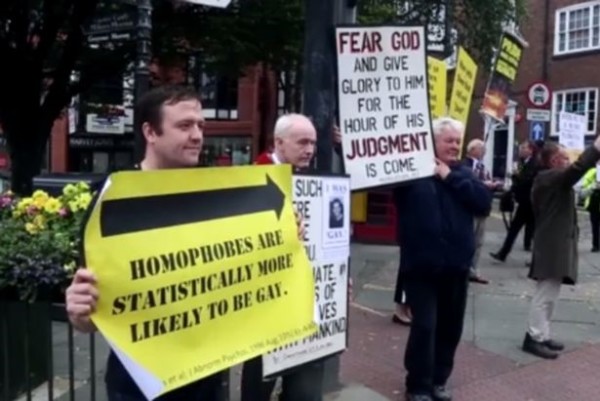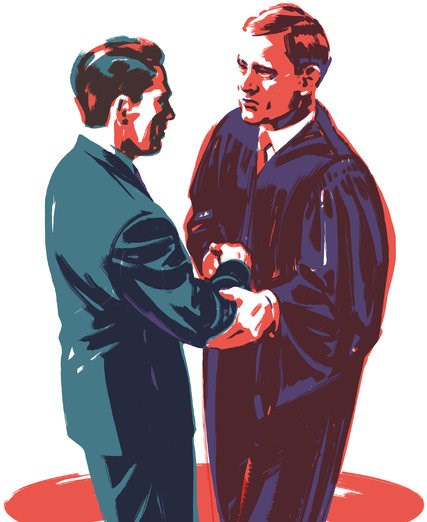In an unreported decision Rennie v Rennie Estate et al, Vancouver Registry S148333, Master Taylor decided to postpone the hearing of a summary trial until a mediation was held between the parties pursuant to a notice to mediate that the plaintiffs had served.
The court reviewed the law in detail and essentially held that unless something can be shown to override the mediation principle, the mediation principle takes first position over the setting of a summary trial, as summary trials can reset while a mediation only occurs once. He further held that he did not see any prejudice to the parties in refusing the application that mediation be postponed until the summary trial had been heard.
This was the first time the case in relation to the postponement of a mediation in relation to a summary trial had been heard, and mediation prevailed, so far as it is to proceed first to that of a summary trial if both applications are served at about the same time.
The Law
[1] Rule 9-7 is the Rule governing the summary trials. I am told that it does not contemplate mediation, but that the mediation Regulations contemplates a summary trial. In particular, paragraph 25 of the Regulations:
On an application for an order under section 24(b), the court
(a) must take into account all of the circumstances, including
(i) whether a party intends to bring a motion for summary judgment, summary trial or for a special case…
[2] 24(b) provides:
A mediation session must occur within 60 days after the appointment of the mediator but not later than 7 days before the date of trial unless a later specified date…
(b) is ordered by the court.
[3] The applicant submits that he is making this application pursuant to s. 23(b) of the Regulations. It reads:
On an application, the court may direct that…
(b) the mediation be postponed to a later date on the terms and conditions, if any, that the court considers appropriate …
And (c) deals with exempting a party from attendance at a mediation.
[4] This appears to be the first case of its kind in British Columbia in dealing with a postponement. There are two cases that have been put before the court as authorities that deal with exemptions.
[5] One important case is that of Kent J. in Matsqui First Nation v. Canada (Attorney General) cited at [2015] B.C.J. No. 1720,2015 BCSC 1409. This is a case where the Matsqui First Nation Band was suing the Attorney General for Canada in respect of fishing rights on the Fraser River. The Crown was served with a notice to mediate which triggered a mandatory mediation process contemplated by the Regulations. The Crown argued that the case raises important issues that require resolution in court and which therefore makes mediation impracticable.
[6] That case was said to be a test case with broad implications because some of the issues to be determined were clarification of, and in this case a vindication of,
[13] At paragraph 17 of the Matsqui decision, Mr. Justice Kent said:
The Crown’s exercise of discretion and the exercise of its fisheries management licencing responsibilities, particularly in the context of the accommodation of Aboriginal titles; characterization as an Aboriginal title within the meaning of the s. 35(1) of the Constitution Act, the right to harvest salmon on the specified area of the Fraser River to satisfy Matsqui needs for food, ceremonial, and social purposes; and the highly controversial claim for damages, not so much in respect to the loss of salmon itself, but more so in respect of the existence and parameters of an alleged “cultural loss” arising from the infringement of the alleged right.
[11 ] Mr. Justice Kent went on to say at paragraph 8:
Once a Notice to Mediate is issued and served under the Regulation, it becomes mandatory for each party to a lawsuit to “engage in mediation”. The Regulation requires attendance of the parties at a mediation session, if not in person, then by way of a representative who must “have full authority to settle, or have access at the earliest practicable opportunity to a person who has… full authority to settle, on behalf of that participant”.
He goes on at paragraph 9:
Section 23 of the Regulation contemplates applications to court for directions respecting the terms or conditions on which a mediation might proceed, the timing and postponement of same, and the exemption of parties from attendance where the same would be “materially impracticable or unfair”.
[12] Justice Kent canvassed a case that we know as Le Soleil, but referred to as Executive inn inc. v. Tan, 2008 BCCA 93, and he also canvassed an Alberta Queen’s Bench decision, IBM Canada Limited v. Kossovan. He said the Kossovan case also made various observations about the alternative dispute resolution process which may be opposite here. At paragraph 39 of that decision found at 2011 ABQB 621, he said:
It is a fallacy to think that the outcome of a [mediation] will always result in a substantial compromise to one’s initial position. While one of objects of dispute resolution is to get both parties to “move” from their Initial positions to one upon which they can mutually accept, the ultimate objective is achievement of a judicious outcome that all parties can live with, put behind them and move on.
However, after participating in dozens of mediations in more than 30 years of practice at the bar before joining the bench, I agree with and endorse the observations made in the Kossovan case.
He went on to say at paragraphs 18 and 19:
[18] The beauty of mediation lies in its confidentiality and flexibility. With the assistance of a skilled mediator, the parties are free to speak to each other directly and to frankly express their concerns and interests without fear of prejudicing the litigation should the matter not settle.
That is to be encouraged. Empathy and apology can and often does play a powerful role. Seemingly intractable positions become less so.
The legal issues framed in the pleadings frequently do not reflect the real interests or concerns motivating the litigants. Creative remedies not available to the court can be forged to bridge differences.
Important relationships can be repaired.
[19] In this case, the Matsqui seek declaratory relief respecting a perceived aboriginal right protected and preserved by the Constitution. This is not the sort of remedy that is readily available in a mediation process. They undoubtedly know this, yet they have initiated the mediation nonetheless. Presumably they believe there is some basis for settling the claim available. It may have little to do with the formal legal relief sought in the litigation. One cannot help but ask what do the parties have to lose by confidentially exchanging and explaining perspectives and interests? If nothing else, perhaps some accommodations and efficiencies may be reached regarding evidence or other trial process that may reduce mutual inconvenience and cost.
At best, some sort of creative resolution in principle may emerge, albeit subject to later ratification by superiors if necessary. At worst, the case will simply proceed to trial in a couple months’ time with an interim “loss” of one or two days’ effort.
[14] Similar sentiments were expressed in Executive Inn Inc. v. 688571 British Columbia Ltd., a decision of our Court of Appeal, [2008] B.C.J. No. 429 and 2008 BCCA 93 and 77 B.C.L.R. (4th) 309, where in that case, the court at paragraph 17 said:
It is important to note that mediation undertaken pursuant to the Regulation is in the context of ongoing litigation. The mediation is an adjunct of a proceeding for which the court is responsible. I consider that s. 23 was enacted to ensure that a court in an appropriate case would be endowed with a broad power to make orders to ensure the efficacy of the mediation process. In the majority of cases, I would expect that the mediation process would proceed, as most do, without the necessity for any intervention by the court. However, in cases where the intervention of the court is thought requisite, s. 23 endows the court with a broad jurisdiction to make the orders necessary to ensure the mediation process is both effective and fair.
I consider s. 23 might be described as in the nature of a broad discretionary provision, designed to be utilized only when necessary to assist in the mediation process. As I noted earlier, I should think the large.majority of mediation proceedings would carry forward without the necessity of court intervention. 1 do not consider that in making the order she did, the chambers judge exceeded her jurisdiction. I would sustain the order and dismiss this appeal.
That order was for the multi-party litigation process to engage in mediation where it was thought to be completely intractable.
[15] The applicant says that, in this particular case, given the affidavits of the doctors and the lawyers involved and the examination of the various parties, he is confident that the matter would only take one day and that the issue could easily be resolved in relation to the issue of competence and it may also be of great assistance to determining what properties are part of the estate for the wills variation action. Counsel for the respondent in this case suggests that one day is not sufficient time for the hearing of this matter. Likely three days or more would be more appropriate, especially since a 10-day trial has been set for the 26th of September, 2016.
[16] So, really, we have two positions. One is that there is unassailable evidence on behalf of the applicant for the postponement that would be used at the summary trial versus the mediation process which the parties say is an important step in the litigation. So which takes precedence, the summary trial or the mediation process?
[17] The decisions in Executive inn Inc. by Madam Justice Dickson, who was the chambers judge, and the Court of Appeal in the reasons I just quoted from at paragraph 17, as well as the reasons of Mr. Justice Kent in Matsqui First Nation both dealt with the issue of exemption whereas the case before this court today is postponement.
[18] Notwithstanding that this is a case of postponement, I think the principles enunciated in the cases I have referred to are important principles and I think, in the circumstances, unless something can be shown to override the mediation principle, I think the mediation principle takes first position over the setting of a summary trial.










